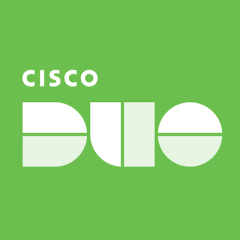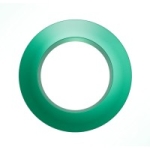What is our primary use case?
We primarily use Cisco Duo for MFA purposes to aggregate MFA solutions, so we don't need five different apps for MFA on our phones, which is excellent. We also link it for identity posture with other Cisco solutions.
I don't think we use that part of Cisco Duo, perhaps other teams do, but not on my side.
We do use Cisco Duo to mitigate phishing attacks and make threat defense. We have a lot of attacks; some are clearly identified and discarded before they reach our emails, although some still reach our email. There are a lot of phishing attacks for us internally and for our clients.
What is most valuable?
The features of Cisco Duo that I have appreciated so far include the seamless integration with many MFA features, so we can correlate everything in one app and don't multiply MFA apps, which is excellent.
Cisco Duo helps our company by allowing us to manage many internal solutions we use efficiently. If every hundred solutions we use each had a different MFA app, we simply couldn't manage that on our phones; it would be too complicated. For security purposes, we want a real posture approach for our MFA to correlate who has access to what, making it easy for our internal security team to give access to those who can access the app.
What needs improvement?
An improvement for Cisco Duo would be a simplification of the licensing model since it's quite complicated to know what's included or not, especially now as it's part of Cisco Secure User Suite, and there are many modifications happening regarding the licensing.
We see the licensing model for Cisco Duo as favorable for our company since we are on NFR because we are a Cisco partner, so we're not exactly clients. The licensing model is quite good except for small countries like ours, where for less than 100 users, the cost is prohibitive, making it too expensive for small companies.
For how long have I used the solution?
Since I entered my current company, I have sold Cisco Duo to our clients, and inside our company, we use Cisco Duo as our MFA solution for some solutions we have running in our labs and also production solutions we have internally. It has been four years now.
What do I think about the stability of the solution?
We don't have any complaints about the stability and reliability of Cisco Duo; it is quite reliable.
How are customer service and support?
I am not in charge of customer service and technical support for Cisco Duo as it is managed by our technical team, but overall for Cisco, we are quite happy. I had a licensing problem last week that was solved in about two hours, so I am always satisfied.
How would you rate customer service and support?
What about the implementation team?
I'm not on the technical part of Cisco Duo's deployment process, so I don't deploy it myself, but I think our engineers are quite happy about it, and I haven't received negative feedback on that.
What was our ROI?
The biggest return on investment for me when using Cisco Duo is gaining time, as I don't have to look at ten different MFA apps, and I know it will work. On a daily basis, I could say I save around ten minutes not searching for the correct app, and if we multiply that by the number of days I work, it amounts to hours and even maybe days over the years, so that's excellent.
What's my experience with pricing, setup cost, and licensing?
Regarding pricing, setup cost, and licensing for Cisco Duo, I find it's not cheaper or more expensive than other products. We do have to pay sometimes for quality, but it's not an outrageous price, so I think it's at the right spot.
Which other solutions did I evaluate?
My company considered some other solutions before choosing Cisco Duo, but I am not sure if I can disclose them.
The biggest difference I see between those solutions and Cisco Duo is the integration with the other Cisco features like ICE.
What other advice do I have?
I am not currently using Cisco Identity Intelligence, and I am not sure if it is part of ICE.
In my opinion, the spike in phishing attacks happens because AI simplifies it for hackers and malicious people to create attacks, as it's really easy for them to copy a website or an email that looks like an official Microsoft or other email and they can mass scale their attacks with ease, so it's not manual operations anymore, and they can generate thousands of attacks each day.
I have not implemented Duo's end-to-end phishing resistance with capabilities such as proximity verification internally.
I have not deployed Duo Directory to manage user identities, as I think it's linked to our AD.
Whether Cisco Duo has helped my company reduce its overall authentication-related costs, I don't know, but the ease of operation is definitely there. Cisco Duo makes everything easier.
I haven't heard any real complaints or gossip about the deployment.
I think the questions regarding my experience using Cisco Duo were quite exhaustive.
I would rate this review an eight out of ten.
Disclosure: My company has a business relationship with this vendor other than being a customer. Partners


















